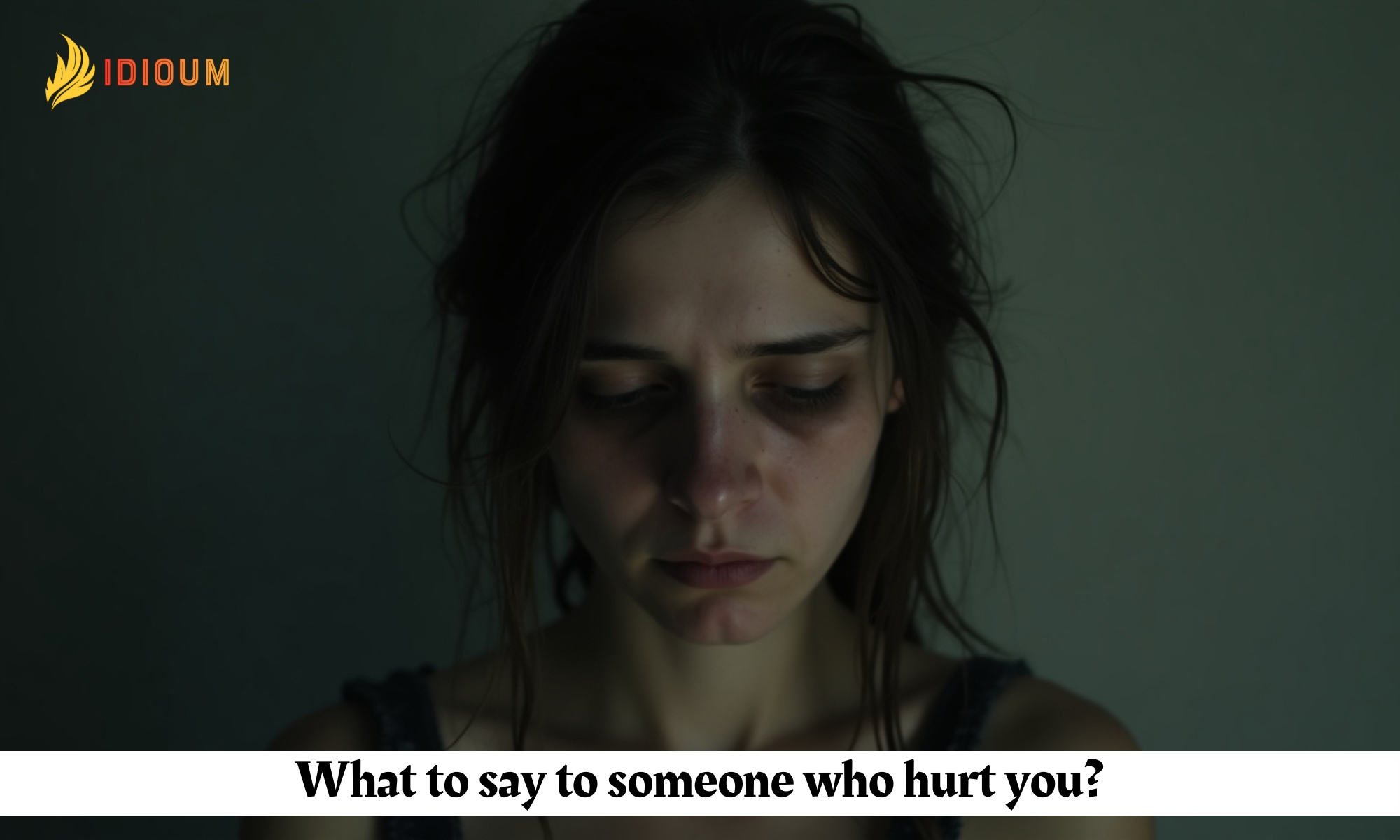We’ve all been there feeling blindsided, betrayed, or deeply disappointed by someone we trusted.
Whether it’s a friend, partner, family member, or coworker, emotional pain can leave you feeling stuck.
But learning what to say to someone who hurt you can be incredibly healing not just for them, but for you too.
When emotions run high, it’s tempting to lash out or say nothing at all.
But words have power, especially when chosen with care. In this post, we’ll walk you through six thoughtful approaches to express your feelings clearly, kindly, and confidently.
Whether you’re ready to forgive or just need to be heard, these tools will help you speak your truth and reclaim your peace.
Let’s dive into what to say to someone who hurt you and how to say it with courage and grace.
Start with “I Feel” Statements Instead of Blame
When you’re hurt, it’s easy to point fingers. But starting with “you did this” can make the other person defensive. Instead, use “I feel” statements to focus on your emotions.
Example:
- Say: “I feel really sad about how that conversation went.”
- Don’t say: “You made me feel worthless.”
This simple shift keeps the conversation calm and focused on how the situation impacted you. It also opens the door for honest dialogue without escalating the tension.
Real-life scenario:
Imagine a close friend forgetting your birthday. Instead of accusing them “You clearly don’t care about me” you might say, “I felt forgotten and hurt when my birthday passed without a message from you.”
This gives them a chance to reflect and respond with understanding.
Be Honest, But Stay Calm
Being honest doesn’t mean being harsh. You can be truthful without yelling, insulting, or guilt-tripping.
Tips for staying calm:
- Take a deep breath before speaking.
- Write down what you want to say first.
- If emotions are too raw, wait a day or two.
Example:
“I want to be honest about something that’s been on my mind. When you canceled our plans last minute, I felt like I wasn’t a priority.”
This kind of honesty allows room for healing instead of creating more damage.
Set Healthy Boundaries
Sometimes people hurt us because there are no clear boundaries. Letting them know what is and isn’t okay is key to moving forward.
Example:
“I need time to heal, so I won’t be texting or calling for a while.”
Real-life scenario:
A coworker spreads a rumor about you. You might say, “It really hurt me to hear what was said. I expect honesty and respect if we’re going to work together moving forward.”
Setting boundaries isn’t punishment, it’s self-protection. It shows that you value yourself and expect to be treated with respect.
Ask for What You Need (Without Demanding)
Sometimes people don’t know how to make things right unless we tell them. Asking for what you need gives them a chance to step up if they truly care.
Example:
- “It would mean a lot if you acknowledged how your actions affected me.”
- “Can we talk about how to rebuild trust?”
Avoid demands like, “You better fix this now,” which can shut the conversation down. Gentle, clear requests are more likely to lead to meaningful resolution.
Express Forgiveness (If You’re Ready)
Forgiveness is not about forgetting or excusing the hurt. It’s about choosing peace over pain for your own sake.
Example:
“I’m still hurt, but I’m choosing to let go of the anger. I don’t want it to control me.”
Real-life scenario:
After months of silence, an old friend reaches out. If you’re ready, you might respond, “That time was really hard for me. But I’d like to move forward.”
Remember, forgiveness is your choice not a requirement.
Know When to Walk Away
Sometimes the most powerful thing you can say… is nothing at all. If someone keeps hurting you, it’s okay to protect your peace and leave the situation.
Example:
“I’ve tried to talk and be honest, but I don’t feel heard. For now, I need distance.”
Real-life scenario:
An ex keeps reaching out with empty apologies. You might say, “I don’t feel this is healthy for me anymore. I wish you well, but I’m moving on.”
Walking away isn’t weakness, it’s wisdom.
Final Thoughts
Learning what to say to someone who hurt you takes courage. It’s not always easy, but it’s always worth it.
Whether you choose to heal the relationship or protect your peace, your words matter. Be honest, kind, and clear and above all, true to yourself.
Sometimes, the most healing thing we can do is speak the truth, then let go.












